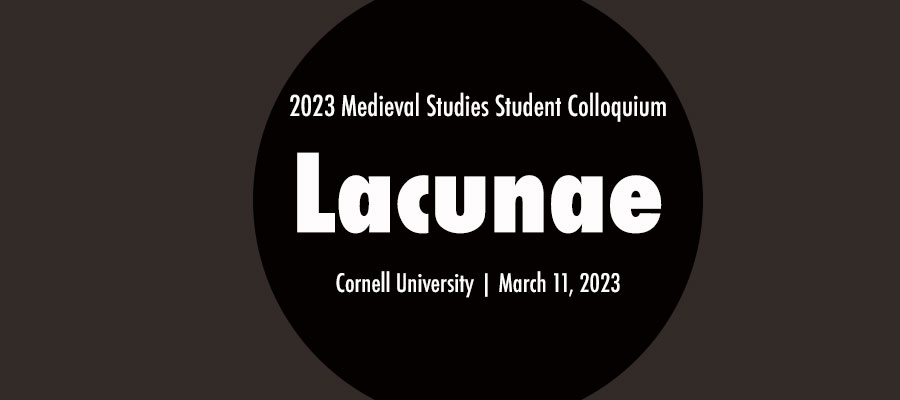2023 Medieval Studies Student Colloquium: Lacunae, Cornell University, March 11, 2023
The Medieval Studies Program at Cornell is pleased to announce the 33rd annual Medieval Studies Student Colloquium (MSSC), which takes the idea of “Lacunae” as its theme. The conference will be held virtually over Zoom on Saturday, March 11th, 2023.
We invite proposals for 20-minute papers investigating the various lacunae present in the Middle Ages or later understandings of or scholarship on the medieval period. Such papers are encouraged to approach this theme from an expansive range of disciplines and perspectives, especially–as the theme suggests–those which have been absent or underrepresented within medieval studies. “Lacunae” can refer to unfilled spaces, gaps, cavities, holes, or absences. For the purposes of this conference, papers may address lacunae in medieval archives or records (i.e., what materials or knowledge about the Middle Ages are we missing or have we lost?) or lacunae in research and other later engagements with the Middle Ages. What strands of theory or scholarship have not been applied to medieval studies? What voices are absent in the field? What medieval works or aspects of medieval culture (material or immaterial) have been overlooked by postmedieval thinkers or reconstructions/re-imaginings of the ‘medieval’? What are the ramifications of medieval lacunae in our current or past understandings of the Middle Ages? Papers may respond to, but are certainly not limited to, these questions.
Papers from underrepresented fields and backgrounds are particularly welcome, and we strongly encourage papers that look beyond Christian, Eurocentric, and Anglocentric contexts. We invite submissions from all fields and disciplines adjacent to Medieval Studies, including but not limited to Asian Studies, Africana Studies, anthropology, archaeology, art history, Asian Studies, classics, Critical Race Studies, gender and sexuality studies, history, Indigenous Studies, literature, Near Eastern Studies, philosophy, and theology. While we will consider all abstracts that are submitted, we will give priority to those aligned with the colloquium’s theme.
